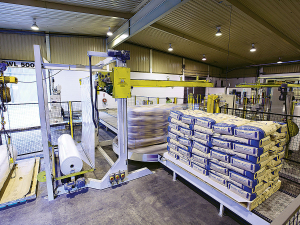Dairy farmers well positioned despite global milk price volatility
Dairy farmers are still in a good place despite volatile global milk prices.
 Global dairy prices suffered its first drop in six auctions, but prices remain 10% above their long-term averages.
Global dairy prices suffered its first drop in six auctions, but prices remain 10% above their long-term averages.
After five consecutive rises, whole milk powder prices dipped in the latest Global Dairy Trade (GDT) auction.
However, Westpac chief economist Kelly Eckhold believes there’s still some upside risk to the bank’s $8.40/kgMS forecast milk price for this season.
Last week’s auction saw the GDT price index drop 0.5%. WMP prices dipped 2.5% to US$3,394/ metric tonne. Eckhold noted that the GDT auction was more mixed than others recently.
He says futures markets had suggested a modestly weaker outcome which did eventuate. While WMP prices were relatively weak, butter prices jumped 6.2%. Skim milk powder prices also rose slightly – 0.2% to US$2,766/MT.
“Chinese buyers pulled back this time, but Southeast Asian and Middle Eastern buyers took up the slack,” says Eckhold.
“Overall prices remain around 10% or so above their long-term averages. Some upside risk to our milk price forecast of $8.40/kgMS for the 2024/25 season remains but its early days yet.”
Fonterra has opened the season with a forecast range of $7.25-$8.75/ kgMS, with a midpoint of $8/kgMS.
The co-operative says milk supply and demand dynamics remain finely balanced and China import volumes have not yet recovered to historic levels.
Listed milk processor Synlait has also announced a $8/kgMS opening forecast for the 2024-25 season.
The company says it has taken a conservative approach to its forecasts given the exposure to future global dairy commodity prices, which are volatile in nature, at the beginning of the season.
Synlait farmer suppliers have received, on average, $0.28/kgMS above the base milk price for the last two seasons. The company is forecasting to pay similar incentives for the 2023-24 and 2024-25 seasons.
Synlait says it will continue to monitor movements and keep farmer suppliers updated as required.
Meanwhile, Taupobased milk processor Miraka has announced a 2024-25 season milk price of $8.42/kgMS.
Miraka chief executive Karl Gradon says the company is committed to doing its part to pay the best milk price, to the best people and farms.
Miraka will pay its suppliers a base price which has been set at $8.25/kgMS. Farmers can also earn an additional premium under Te Ara Miraka, the company’s farming excellence programme. Since its establishment in 2010, Miraka has paid more than $21 million in premiums to farmer suppliers.
The South Island Dairy Event has announced Jessica Findlay as the recipient of the BrightSIDE Scholarship Programme, recognising her commitment to furthering her education and future career in the New Zealand dairy industry.
New Zealand and Chile have signed a new arrangement designed to boost agricultural cooperation and drive sector success.
New DairyNZ research will help farmers mitigate the impacts of heat stress on herds in high-risk regions of the country.
Budou are being picked now in Bridge Pā, the most intense and exciting time of the year for the Greencollar team – and the harvest of the finest eating grapes is weeks earlier than expected.
The Real Estate Institute of New Zealand (REINZ) has released its latest rural property report, providing a detailed view of New Zealand’s rural real estate market for the 12 months ending December 2025.
Rural retailer Farmlands has released it's latest round of half-year results, labeling it as evidence that its five-year strategy is delivering on financial performance and better value for members.
OPINION: Expect the Indian free trade deal to feature strongly in the election campaign.
OPINION: One of the world's largest ice cream makers, Nestlé, is going cold on the viability of making the dessert.